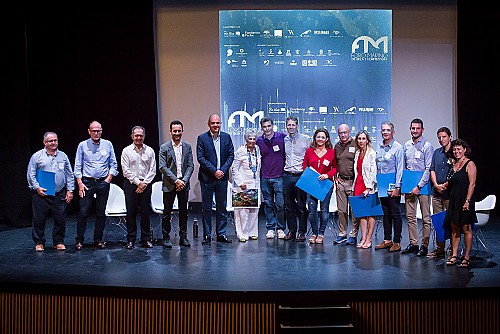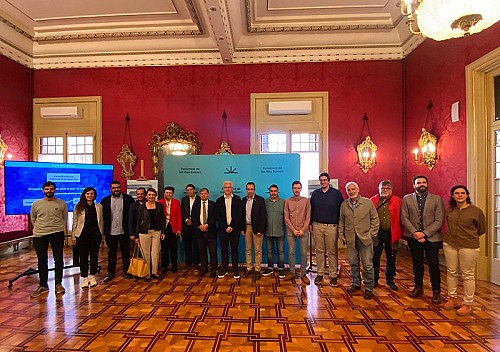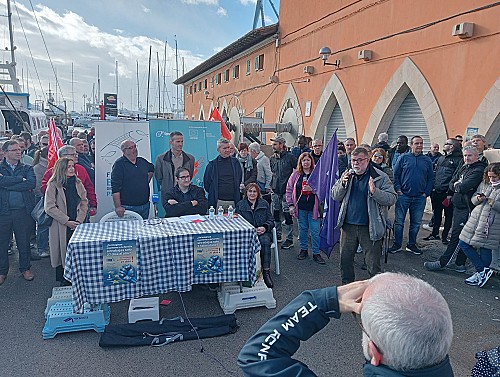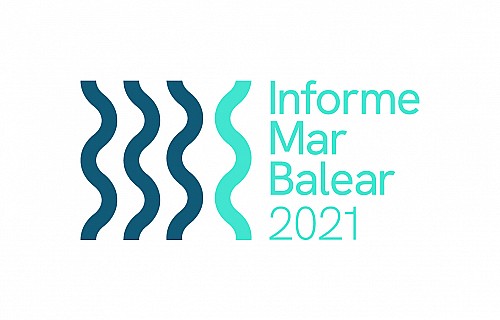‘We humans do not treat the sea as an ecosystem full of life, but as just another disposable object.
Published 18.09.2024
Share
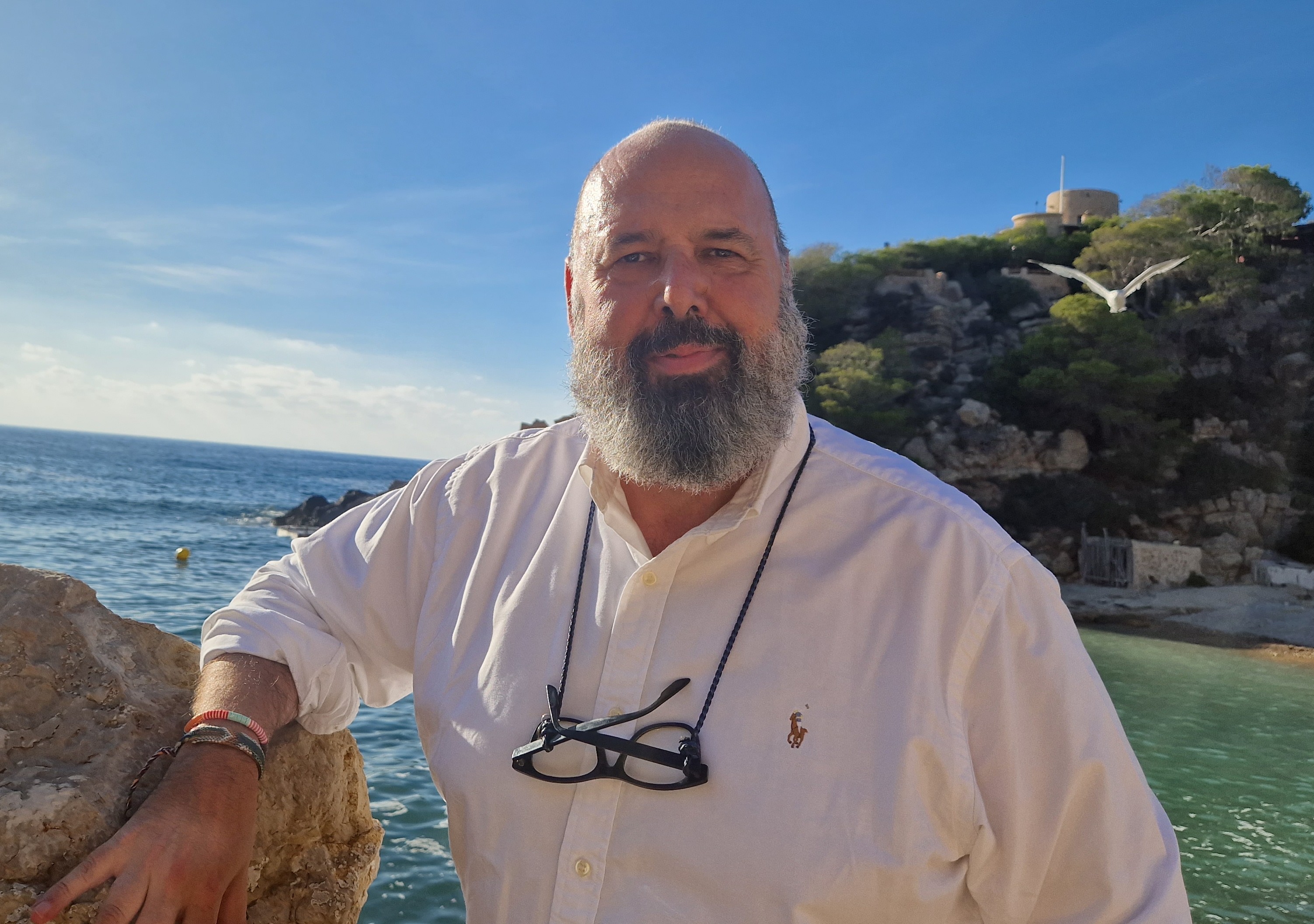
Related project
Antonio Martínez Beneyto (b. Madrid) is a journalist, communications consultant, and a lover of the sea. For the last six years, he has been organising the Marine Forum, a space for reflection and debate on the challenges of the conservation of the Balearic Sea. Marilles Foundation is part of the group promoting this event, which this year celebrates its sixth anniversary.
How did the Marine Forum come about and what are its objectives?
The Marine Forum is the result of the commitment of three environmental organisations (Ibiza Preservation, Marilles, and the Pacha Foundation), two business groups (Alonso Marí Group and OD Group), and the Vellmarí Association. It was born to put the protection, recovery, and regeneration of the Mediterranean in the foreground, in a society that often seems to live with its back to the sea. Six years later, we talk about jurisprudence, science, education, tourism, economy, and biodiversity, among other topics. We continue to draw attention to the urgent need to ensure that the water we discharge into the sea is properly treated. We talk about the circular economy and the need to reduce waste. We try to give people a global vision of the Mediterranean situation.
Can you tell us what this year's Forum will be like, and what's new?
This year, the Marine Forum will be present on the four islands. We want to amplify our message and we understand that after the previous five forums, the sixth has to be one of expansion. Ibiza and Formentera have hosted the forum so far, but our work makes no sense if we do not reach Mallorca and Menorca. The problems the Mediterranean suffers in the south of the Balearic Islands are also suffered in the north. Effective protection is needed. We must invest more in improving and updating the water cycle and we must be aware of the carrying capacity of our islands.
This summer has been the one of debate on the limits of the territory. We have also seen record-breaking sea temperatures and the effects of the massive presence of boats in the Balearic Sea. What do you think are the most important challenges facing the marine and coastal environment of the Balearic Islands?
The fundamental challenge we face is to create the necessary awareness to urgently protect our sea. It is difficult to talk about regeneration when protection is minimal. We human beings maintain an uncontrolled extractive relationship with the sea. We do not give it time to recover. We do not treat it as an ecosystem full of life, but as just another disposable object. It is free. It is not valued. And it is nobody's property.
And do you think the citizens are aware of this?
Every day, there are more and more people who are conscious of it, but there are still many who don't want to be aware of the reality. I've been living in Ibiza for 20 years and I've been coming to the islands for a few more. The sea I knew then has little to do with what it is now. The beaches and the human pressure on them, the temperature of the water, the pollution, nothing is the same. And just as I see it, or you see it, the rest of the people also perceive it. But unfortunately, we are short-sighted. We think about immediate interest and reward. If we do not change the current model, the Balearic Islands that our children will inherit will have little to do with the paradise that our generation enjoyed. We have taken very bad care of our natural heritage.
Sometimes it seems that marine conservation entities speak for the already ‘convinced’. How do you think we can get the message across to the public? And to young people?
At the Marine Forum, we are convinced that it is necessary to disseminate information and raise awareness. We have to ensure that the protection of the environment in general, and of the marine environment in particular, is at the centre of the present and future debate. And the administrations, institutions, companies, the third sector, and each one of us will have to position ourselves and work to achieve the necessary change.
Young people must be the protagonists of this change. Many of them are aware of the current situation and are concerned about what they are going to receive, so they will have to get involved. For the last five years, we have been organising the Future Forum, a space dedicated to the young people of the island so that they can reflect and debate about the Mediterranean. They participate and contribute with really interesting ideas.
Sylvia Earle said that the Balearic Islands can be a world reference of hope for the protection of the sea. Do you agree with her?
If we put our minds to it, I am convinced that we can achieve it. We have the human capital; these islands are prosperous and there is a desire to change the current situation. Now, we just have to show that we are capable of rowing in the same direction.
What is your relationship with the sea?
I have deep respect and gratitude for everything it offers us, and I am an apprentice for everything it teaches me.
QUICK TEST FOR SEA LOVERS
A book: Jonathan Livingston Seagull, by Richard Bach.
An image that evokes the Balearic Islands: The Ibiza salt flats, at sunset out of season. It's sea, sand, junipers, and pine trees.
A marine species: The octopus for its ability to find solutions to complex situations.
A person or organisation of reference: Sylvia Earle.
A beach: Cala Carbó.
Optimist, pessimist, or realist? In the process of being a realistic optimist, avoiding, with a lot of effort, falling into pessimism.

